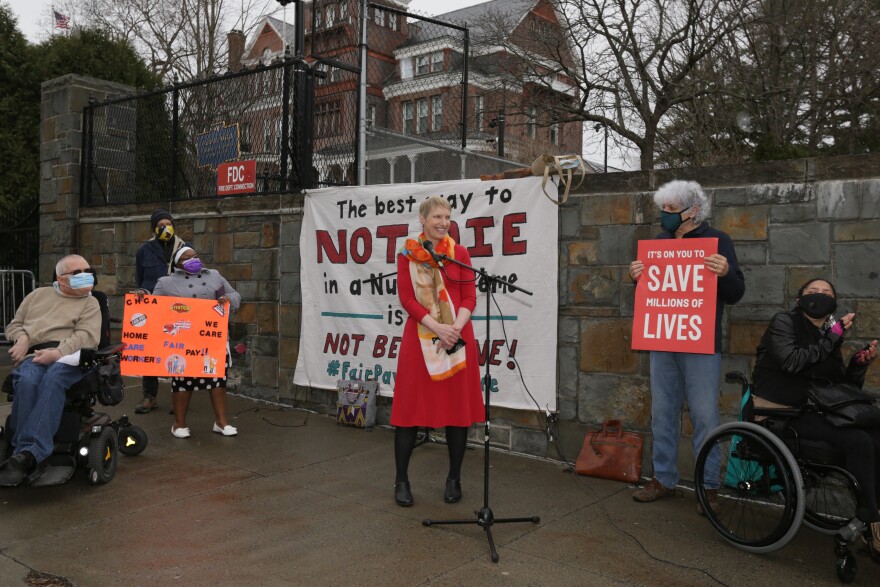Demand for home health care aides is expected to rise in New York in the coming years, yet a recent study finds that the state will be unprepared to meet that need. Research from the City University of New York (CUNY) shows that on average 17 percent of home care positions are already left unfilled due to staff shortages.
Syracuse State Sen. Rachel May said it's difficult to recruit and reduce turnover in this industry because of the low pay.
"The average home care aide makes about $22,000 a year, which is poverty level," May said. "We’ve heard from lots of home care workers that they like the work, they want to do this job, but they just can’t afford to."

So May has introduced a bill to raise pay for home health aides and personal care aides to 150% of the minimum wage. CUNY estimated that any increase in salaries for home health aides would require significant state resources but that it would pay for itself through increased individual spending, fewer people relying on state-funded public assistance programs, higher tax revenues, and a beneficial economic spillover.
"The studies show we would be better off financially as a state and our local economies would be better off because when you put money in people’s pockets, they spend it, and then there would be more people going into healthcare," May said.
It could also address the growth in demand for these workers, which is only expected to increase after viral outbreaks of COVID-19 at nursing homes and the limited access families had to their loved ones during the last year.
Kathy Febraio is the president and CEO of the New York State Association of Health Care providers, which advocates on behalf of home health care agencies. She said agencies support higher wages for their workers, but the state has to help shoulder the cost.
"We far too often are experiencing cuts in reimbursement rates year over year and how does an agency invest in its workforce when rather than receiving increases, they are receiving decreases, something has to give" Febraio said. "We are concerned that new wage mandates will only accelerate the financial challenges of home health care agencies. We are interested in the conversation, we just want to ensure that it is balanced approach that will help everyone."
New York lawmakers have proposed restoring previous cuts to long-term Medicaid funding in this year's budget and ending the cap that limits annual spending on Medicaid. A vote on the budget is expected this week.









